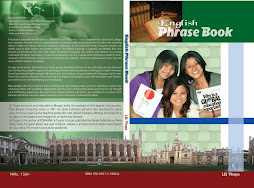BY LB THAPA
The Gurkha Contingent Singapore Police Force was founded in 1949. Then Singapore was a colony of Britain. Before the First and the Second World War, the British Gurkha soldiers were stationed in Singapore. Many Gurkhas graves can still be spotted at Kanzi, Singapore. They had attained martyrdom while battling against the formidable Japanese. Advancing Japanese force was virtually unstoppable. They wrecked havoc on many parts of Singapore and captured several British and Gurkha soldiers during the Second World War (1942-1945). They were imprisoned in Changi Prison, Singapore. However, Gurkha soldiers managed to save the life of one of the prominent leaders Lee Qwan Yu Lai. He was therefore grateful of Gurkha soldiers for rest of his life.
Meanwhile, Japanese officers stationed in Changi Prison also fixed a date for the mass execution of the prisoners. During that time, the USA had dropped two powerful bombs on Hiroshima and Nagasaki. Subsequently, Japan gave in and admitted the defeat in the war. The prisoners were released outright. After end of the war, Lee Qwan Yu emerged as an influential leader of Singapore. Yu was already impressed with the bravery and loyalty of the Gurkhas. Hence, he formally requested the government for recruiting Gurkhas in the Singapore Police. Later, it was agreed to recruit the Gurkhas without making any discrimination in service. In 1978, Gurkha soldiers in Singapore split into two groups. One group was known as Singapore Gurkha Police and the second was Singapore Prison Gurkha. But in 1981, Commander B.M Niven merged the both groups and made one Gurkha unit. Since then Gurkhas have been performing outstanding service in maintaining law and order in Singapore.
DISCRIMINATIONThe British recruits one group of Gurkha for the UK army while another for the Singapore Police Force. And this trend is still on. In the past, the British would take Gurkhas to Hong Kong until the city was retained by China in 1997. Those Gurkha children born in Hong Kong were entitled to get Hong Kong ID. After Hong Kong fell in the hand of China, the Gurkhas were being taken to the UK. The Gurkha children born in the UK too became entitle to get the British residency. But, it is quite ridiculous to note that no Gurkha children get right to get Singapore residency even after having born and educated there. Singapore Police has to perform tough jobs in the course of duty. Gurkhas had been to East Timor, Indonesia, and Iraq to quell the terrorists and insurgents. But their job has never been appreciated. Talking to this reporter Balaram Thapa Magar, a retired Singapore Police officer and the president of Gurkha Ex-Singapore Police Association (GEsPA) said "We Gurkha serve for 27 years in Singapore Police with all commitment and dedication, but the kind of treatment we receive from the government is awful and disgusting indeed." He further added "Soon after the retirement, if we failed to leave the country on the stipulated day, we are treated illegal migrants. The Singapore government does not hesitate to dump us behind the bar for this crime. No Gurkha children can stay in Singapore and pursue higher education after their fathers are retired from the service. Overseas students coming to Singapore can claim for the Permanent Resident (PR), but those Gurkhas children who born and raised there are not even entitle to study in Singapore, let alone PR. This is a blatant discrimination against the Gurkhas, who serve in Singapore without caring their lives. But in return they get injustice, partiality and inhuman treatment from the Singapore government."
After 27 years of long service in the Singapore Police Force, a Gurkha gets retirement on pension. But after the death of the pensioner, the pension is discontinued. Whereas, a UK Gurkha soldier's family gets pension even after her husband's death! Why is this discrimination against the Gurkhas, who are recruited from the same place, asks Thapa Magar? "More, in 1981, a monthly salary of a Singapore police was 585 dollars. After 28 years, Singapore police has the same salary. There is no increment of any kind at all. Gurkha's children or their wives are not allowed to work there. In this situation, to meet the family expenses has become a matter of serious concern for many Gurkhas working in the Singapore Police Force. However, life could be little conformable who hold upper ranks."
When the injustice and gross discrimination crossed its limit, all the Gurkhas unanimously decided to raise a voice to draw government's attention. On 13 June 2008, all the Gurkhas in service and their family members took to street for a peaceful rally. Their only intention behind this was to draw the attention of the government to end the discrimination and injustice done against the Gurkhas. Their demands were genuine as a result positive response began pouring among the people. This scared the Gurkha Contingent Singapore Police Force authority. The DMP director tried his best to resolve the issue, but it was not possible then. The Gurkhas had resorted to continue the protest unless and until their demands were met. In the end, DMP made the promise to fulfill Gurkha's demands with due respect.
"A day later chief of the Singapore Police Force came to our unit and said that we took the issue to public and that was a punishable act in the police. So we should face a charge and possible punishment as well. They wanted to abort our campaign before it reached to crest. They targeted seventeen Gurkha policemen whom they thought were leading the campaign. They asked us to take volunteer retirement or the entire Gurkha Contingent Singapore Police Force would be disbanded. For the benefit of our peers, we decided to give in before the authority. We were satisfied because all the papers were made and we were told that we would get our pensions after 62 days. But this was merely a conspiracy hatched against the Gurkhas. Only after having reached to Nepal, we came to know about the trick played against us. The Gurkha Contingent dubbed us violence makers and rule breakers and therefore we were terminated from the service. We could not believe in what we heard and read in newspapers, but this was the reality. We were tricked by none other than our own bosses for whom we shed our blood and sweat at times when it required most. The Singapore government has stopped our pension and all the benefits that we are entitle to receive after the completion of our service in the Singapore Police Force" blamed the officer.
Now, these retired personnel want justice and only justice. Balaram Thapa Magar, the retired officer, reiterated "We want to make a sincere request to Human Rights Groups and others to extend their helping hands so that a legal battle against discrimination and injustice can be fought together. We request and warn to the Singapore government for providing due attention to the injustice done against us before it is too late. However, we are keen to resolve the crisis in amicable manner possible, only if the Singapore government is interested."
(This article was published in People's Review weekly, Kathmandu)









No comments:
Post a Comment